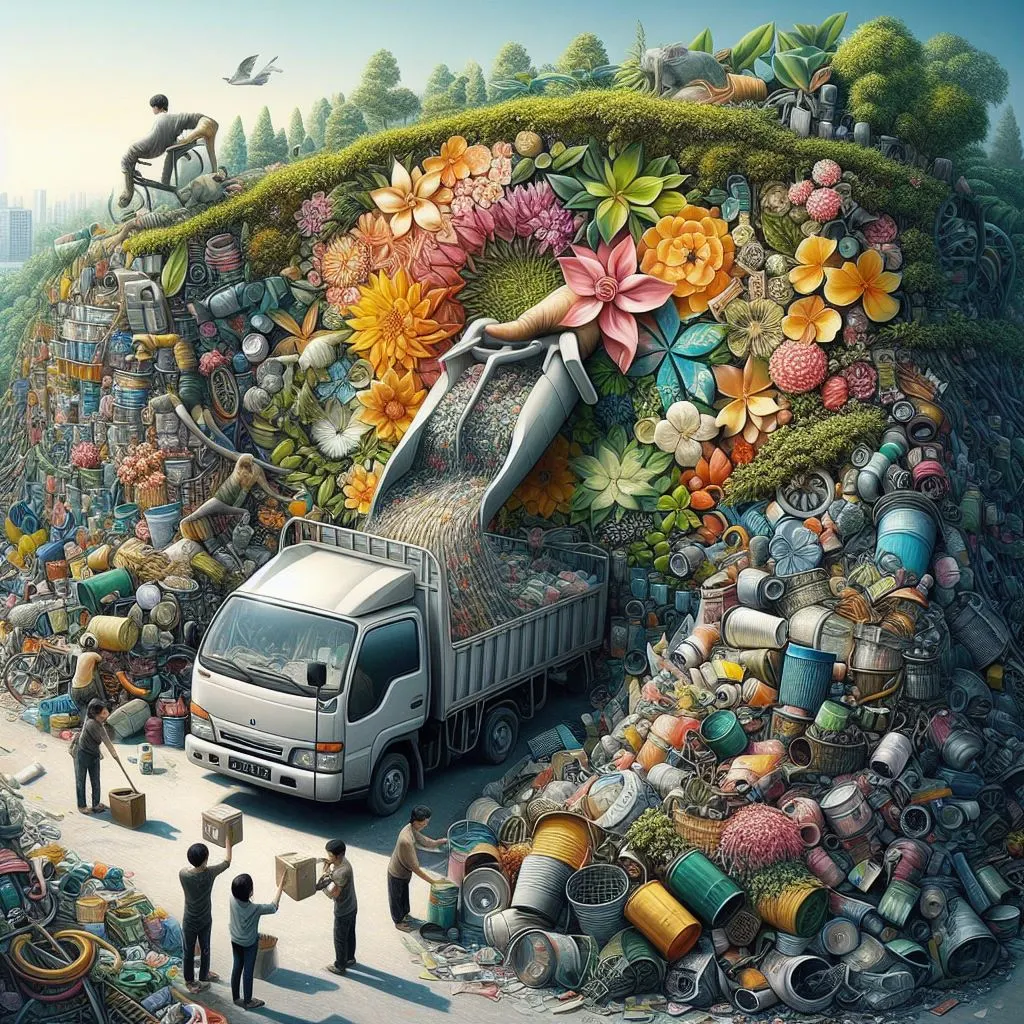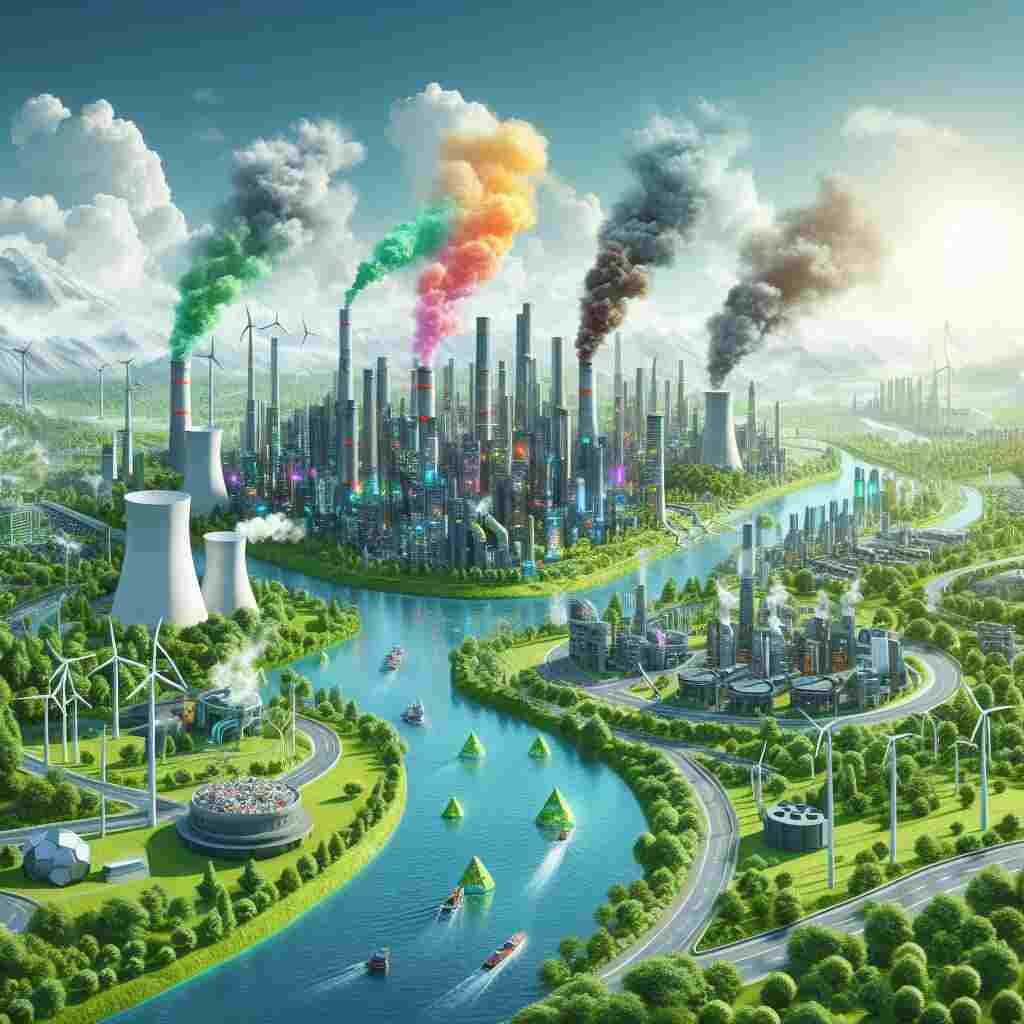handshakejournal.org – The world is facing a critical challenge in managing waste, particularly with the increasing volume of plastic and electronic waste. Recycling has emerged as a key solution, but traditional methods are no longer sufficient. Innovations in recycling technology are revolutionizing the way we handle waste, turning it into valuable resources and reducing environmental impact.
Advanced Sorting Technologies Revolutionizing
One of the most significant advancements in recycling is the development of advanced sorting technologies. Automated sorting machines, equipped with sensors and artificial intelligence, can accurately separate different types of materials at high speeds. This innovation not only improves the efficiency of recycling but also ensures that the quality of the recycled materials is higher. For instance, in the realm of online entertainment, slot gacor online platforms utilize advanced algorithms to enhance user experience, similar to how sorting technologies optimize the recycling process.
Chemical Recycling Revolutionizing Waste: Innovations in Recycling
Chemical recycling is a game-changing innovation that breaks down plastics into their molecular components, allowing for the creation of new plastics with the same quality as virgin materials. This process can handle mixed and contaminated plastics that traditional mechanical recycling cannot. It’s akin to hitting the jackpot in slot gacor online, where a single spin can transform a game, just as chemical recycling can transform previously unrecyclable plastics into valuable resources.
Chemical recycling is a revolutionary approach that is transforming the recycling industry. Unlike traditional mechanical recycling, which merely breaks down plastic into smaller pieces for reuse, chemical recycling delves deeper by breaking down plastic polymers into their basic molecular components. This process opens up a world of possibilities for recycling, as it can convert a wide range of plastic wastes, including mixed and contaminated plastics, into high-quality raw materials.
One Of The Most Exciting Aspects Of Chemical Recycling
Potential to create a truly circular economy for plastics. In a circular economy, materials are reused and recycled continuously, minimizing waste and reducing the need for virgin materials. Chemical recycling plays a crucial role in this process by enabling the production of new plastics with the same quality and performance as those made from virgin materials. This is a significant advancement over mechanical recycling, which often results in lower-quality materials that can only be used for less demanding applications.
Furthermore, chemical recycling can also tackle some of the most challenging types of plastic waste, such as multi-layer packaging and plastic films, which are difficult to recycle through traditional methods. By breaking these materials down to their molecular level, chemical recycling can extract valuable resources and convert them into new products, reducing the amount of waste sent to landfills or incinerators.
In addition to its environmental benefits, chemical recycling also holds great promise for economic growth. It can create new markets for recycled materials and stimulate innovation in the development of sustainable products. Just as slot gacor online platforms have revolutionized the gaming industry by providing exciting and innovative gaming experiences, chemical recycling is poised to revolutionize the recycling industry by offering sustainable and economically viable solutions for plastic waste management.
Biodegradable and Compostable Materials Revolutionizing
The development of biodegradable and compostable materials is another crucial innovation in the recycling industry. These materials are designed to break down naturally in the environment, reducing the need for traditional recycling processes. Just as slot gacor online games offer a refreshing and sustainable form of entertainment, biodegradable materials provide an eco-friendly alternative to conventional plastics.
Biodegradable and compostable materials represent a significant shift in our approach to manufacturing and waste management. These materials are designed to break down naturally, either in the environment or in industrial composting facilities, without leaving harmful residues. This feature makes them an attractive alternative to traditional plastics, which can take hundreds of years to decompose and often contribute to pollution and wildlife harm.
The development of biodegradable and compostable materials is driven by advances in material science and a growing awareness of environmental issues. These materials are often made from renewable resources, such as plant-based polymers, and are engineered to degrade under specific conditions of moisture, temperature, and microbial activity. As a result, they offer a more sustainable solution for single-use products, packaging, and other applications where traditional plastics are commonly used.
The adoption of biodegradable and compostable materials is not just about reducing waste; it’s also about rethinking our relationship with the materials we use every day. Just as slot gacor online games provide a new way to enjoy entertainment, biodegradable and compostable materials offer a new way to interact with our environment, one that is in harmony with nature’s cycles and reduces our ecological footprint.
Electronic Waste Recycling
Electronic waste (e-waste) is one of the fastest-growing waste streams, and recycling it is a complex challenge due to the variety of materials and toxic substances involved. Innovations in e-waste recycling, such as automated disassembly and precious metal recovery, are making the process more efficient and environmentally friendly. The excitement of winning in slot gacor online is mirrored in the successful recovery of valuable metals from e-waste, turning potential environmental hazards into profitable resources.
The innovations in recycling are revolutionizing the way we manage waste, much like how slot gacor online has transformed the gaming industry. Advanced sorting technologies, chemical recycling, biodegradable materials, and e-waste recycling are just a few examples of how we are moving towards a more sustainable and circular economy. As we continue to innovate, we can look forward to a future where waste is not just managed, but harnessed as a valuable resource.






